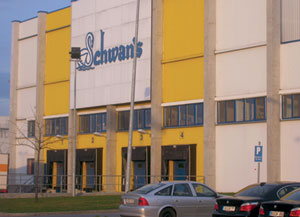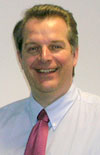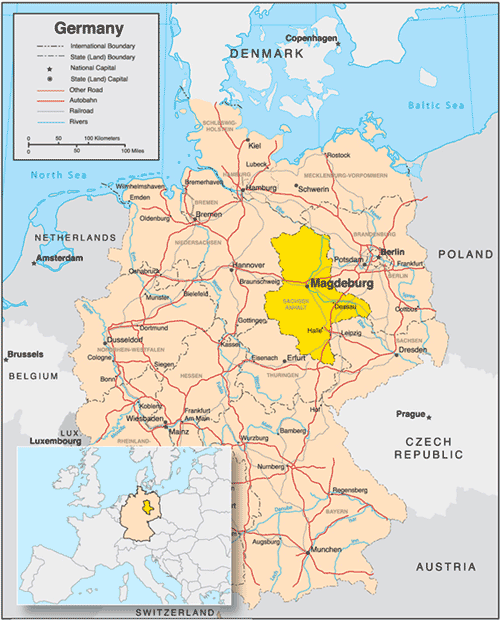Magdeburg/Sülzetal, Germany:
An Editorial Profile
An Editorial Profile
Taking Care of Business
The company's site selectors were presented with options ranging from existing manufacturing facilities to greenfield sites. They soon learned about an industrial area on the outskirts of Magdeburg where investors were finding what they wanted in terms of rapid development and ease of establishing operations. That area's secret weapon is the local mayor, or burgermeister, Erich Wasserthal, who knows how to turn prospects into projects.
"He brought together the people who could make decisions – we were speaking with the top guys at different ministries about our concerns," says Monir.
One such concern was Nice- Pak's desire to operate its facility on a 24/7 basis in order to meet demand for its products. "That can be a problem in Germany, but it's the way we run our factories elsewhere, so we wanted the option to do that. The state said it would not be a problem provided standard rules applying to labor were followed."
The Schwan Food Co., a U.S.- based producer of frozen pizzas and other foods,
 |
 Schwan Food built its new facility near Magdeburg, "in the middle of the European Union," says Winand Rose, managing director. Schwan Food built its new facility near Magdeburg, "in the middle of the European Union," says Winand Rose, managing director. |
The existing facility is 45,000 sq. m. (484,000 sq. ft.), and newly purchased property adjacent to the site will allow it to expand to 100,000 sq. m. (1 million sq. ft.). Three hundred people work at the facility, including 20 apprentices, who are developing skills in sales, marketing, food technology, administration and other fields.
"It is important for the former East Germany to give young people a future, to train them and develop them," says Rose. "We are very proud to be one of the biggest companies using apprentices from the three- year school and practical experience program." Hundreds of applicants compete for only a handful of openings.
Rose gives high marks to the local labor force. "If you compare western and eastern Germany, we are working here two hours longer per week than in western Germany. People are more flexible here than they are in western Germany," says Rose, who worked in the past for large U.S. corporations in western Germany. "Overtime is not an issue, and working on weekends is not an issue," he adds. "The work week here is Monday to Saturday, whereas in western Germany, it's only Monday to Friday, and that makes a big difference."
In fact, the work force appreciates the opportunity to earn more money by working longer hours, but workers also tend to be proud of where they work in eastern Germany, notes Rose. Elsewhere, "Workers do their job and go home, and that's the end of it. Here, they take a lot of pride in their work and their company."
Once Osterweddingen was on Schwan's short list of suitable locations, Burgermeister Wasserthal had simply to deliver on the area's promises, which he did. Rose made it clear in February 1998 that Schwan's needed to be producing Chicago Town and Freschetta brand frozen pizzas at the site by November – of the same year. The mayor asked for a day to look into the feasibility of such a timetable; he came back the next day with the assurance that it would happen.
"Time is money to these companies," says Wasserthal.
"They do things quite differently from other countries or areas here," says Rose. "They are flexible, they do what they say they will. They don't think in terms of 'problems,' but rather 'challenges' to be addressed by the local economic developers. And they do address them. We simply do not see this in other countries or areas.
"It should also be understood that this is not just true in the implementation period," adds Rose. "We have been established here since 1998, and we are still receiving that same level of support." Twice per year, the mayor convenes the leaders of the businesses in the Sülzetal region to discuss their issues and concerns. The local government facilitates solutions to their issues, and the business leaders feel connected to their peers in the area, which Rose says is beneficial on many levels.
 |
Western investors typically are concerned about the labor force in eastern Germany, says Rose, who spends a fair amount of time meeting with site seekers from the U.S. and elsewhere. They wonder about availability of the right skill sets and whether the language barrier is surmountable. Both are valid concerns but not to the extent that the region should be disqualified, he says.
"For the past two years, we have been offering English classes on three different levels, so that is not an issue any more for us," says Rose. Moreover, the first German- American school in Saxony- Anhalt is in development with support from major U.S. companies and the two governments. The school, in Osterweddingen, will serve as a cultural center as well and will feature exchange programs for faculty.
Initially, the school will cater to students in years five through 10. Besides academics, the school will offer opportunities to gain practical experience in certain fields as well, such as food preparation and engineering.
As the industrial area in Osterweddingen currently runs short of areas available for new businesses, Sülzetal and Magdeburg have agreed upon the development of a joint industrial area which enables the establishment of new plants in all dimensions. Therefore, the planners of both local authorities have worked out the basics for the development of a 750- hectare (1,853- acre) industrial area within a remarkably short time. By summer 2007, the required legal conditions shall be defined so that the establishment of the first new plants may begin.
"For the first time in Saxony- Anhalt, a large city and a smaller community join forces to develop a huge industrial area to the advantage of the businesses who are setting up companies as well as the communes involved," explains Dr Klaus Puchta, the Head of the Department for economic matters of the city of Magdeburg. "For businesses setting up companies, it is of minor importance whether their site is located in Magdeburg or in Osterweddingen. What counts is the high value on the site's quality, which they will definitely find at our location," explains Dr Puchta.
Adds Sülzetal's Lord Mayor Wasserthal, "Even before the actual planning stage is complete, we have already found several parties for this joint project who are interested in setting up their company on an area of 50 hectares [124 acres]. We also hope to draw the attention of major industrial enterprises to the Magdeburg region by providing this attractive industrial area."

